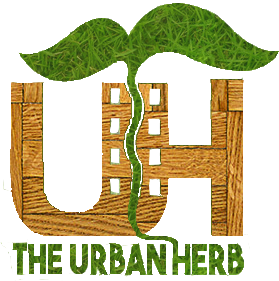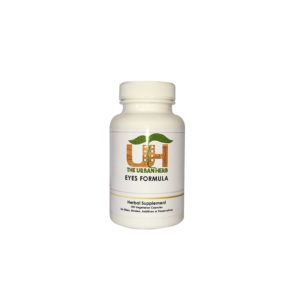Description
Kidney, Bladder and Adrenal
The Urban Herbs’ Kidney, Bladder and Adrenal formula contains herbs that have an affinity for the kidneys, bladder and adrenal glands. Kidneys have various functions that the herbs included help with. As a result, it will assist with revitalizing the urinary system, eliminate kidney stones and promotes health and well being.
The kidneys are two bean-shaped organs found in vertebrates. They are located on the left and right in the retroperitoneal space and in adult humans are about 11 centimetres (4.3 in) in length. In adult males, the kidney weighs between 125 and 170 grams. In females the weight of the kidney is between 115 and 155 grams. The adrenal glands sit on top of the kidneys. They receive blood from the paired renal arteries; blood exits into the paired renal veins. Each kidney is attached to a ureter, a tube that carries excreted urine to the bladder.
Blood Supply
The renal circulation supplies the blood to the kidneys via the renal arteries, left and right. These branch directly from the abdominal aorta. Despite their relatively small size, the kidneys receive approximately 20% of the cardiac output.
Filtration
Filtration is the process by which cells and large proteins are retained while materials of smaller molecular weights are filtered from the blood to make an ultrafiltrate that eventually becomes urine.
Reabsorption
Reabsorption is the transport of molecules from this ultrafiltrate and into the peritubular capillary. It is accomplished via selective receptors on the luminal cell membrane. Water is 55% reabsorbed in the proximal tubule. Glucose at normal plasma levels is completely reabsorbed in the proximal tubule.
Secretion
Secretion is the reverse of reabsorption. Molecules are transported from the peritubular capillary through the interstitial fluid, then through the renal tubular cell and into the ultrafiltrate
Excretion
The last step in the processing of the ultrafiltrate is excretion. As the ultrafiltrate passes out of the nephron and travels through a tube called the collecting duct. This is part of the collecting duct system and then to the ureters where it is renamed urine.
Homeostasis
Each kidney participates in whole-body homeostasis by regulating acid-base balance and electrolyte concentrations. It also regulates extracellular fluid volume and blood pressure. The kidney accomplishes these homeostatic functions both independently and in concert with other organs, particularly those of the endocrine system. Various endocrine hormones coordinate these endocrine functions. These include renin, angiotensin II, aldosterone, antidiuretic hormone, and atrial natriuretic peptide, among others.
Excretion
The kidneys excrete a variety of waste products produced by metabolism into the urine. These include the nitrogenous wastes urea, from protein catabolism, and uric acid, from nucleic acid metabolism.
Regulation of osmolality
Maintaining water and salt level of the body. Therefore, any significant rise in plasma osmolality is detected by the hypothalamus, which communicates directly with the posterior pituitary gland. An increase in osmolality causes the gland to secrete antidiuretic hormone (ADH). This causes water reabsorption by the kidney and an increase in urine concentration
Kidney disease is an abnormal structure, function or process in the kidney(s).
Acquired
- Diabetic nephropathy
- Glomerulonephritis
- Hydronephrosisis the enlargement of one or both of the kidneys caused by obstruction of the flow of urine.
- Interstitial nephritis
- Kidney stones (nephrolithiasis) are a relatively common and particularly painful disorder. A chronic condition can result in scars to the kidneys. The removal of kidney stones involves ultrasound treatment to break up the stones into smaller pieces. These are then passed through the urinary tract. One common symptom of kidney stones is a sharp to disabling pain in the middle and sides of the lower back or groin.
- Kidney tumour
- Lupus nephritis
- Minimal change disease
- In nephrotic syndrome, the glomerulus has been damaged so that a large amount of protein in the blood enters the urine. Other frequent features of the nephrotic syndrome include but are not limited to swelling, low serum albumin, and high cholesterol.
- Pyelonephritisis infection of the kidneys and is frequently caused by complication of a urinary tract infection.
- Kidney failure
- Renal artery stenosis
- Renovascular hypertension
Congenital disease
- Congenital hydronephrosis
- Congenital obstruction of urinary tract
- Duplex kidneys, or double kidneys, occur in approximately 1% of the population. This occurrence normally causes no complications, but can occasionally cause urinary tract infections.
- Duplicated ureter occurs in approximately one in 100 live births
- Horseshoe kidney occurs in approximately one in 400 live births
- Nutcracker syndrome
- Polycystic kidney disease
- Autosomal dominant polycystic kidney disease afflicts patients later in life. Approximately one in 1000 people will develop this condition
- Autosomal recessive polycystic kidney disease is far less common, but more severe, than the dominant condition. It is apparent in utero or at birth.
- Renal agenesis. Failure of one kidney to form occurs in approximately one in 750 live births. When both kidneys fail to form used to be fatal. However, medical advances such as amnioinfusion therapy during pregnancy and peritoneal dialysis have made it possible to stay alive until a transplant can occur.
- Renal dysplasia
- Unilateral small kidney
- Multicystic dysplastic kidney occurs in approximately one in every 2400 live births.
- Ureteropelvic Junction Obstruction or UPJO; although most cases are congenital but, some are acquired.
Function: The Kidney, Bladder and Adrenal formula contains herbs that have an affinity for the kidneys, bladder and adrenal glands. As a result, it will assist with revitalizing the urinary system, eliminate kidney stones and promotes health and well being.
Ingredients: Juniper Berries, Cornsilk, Uva Ursi, Asparagus, Buchu, Cranberry, Tribulis, Hydrangea, Cleavers, Pelitory of the Wall, Lycopodium,Celery Seed, Parsley Leaf, Gravel Root, Couchgrass, Pipsissewa, Horsetail, Nettle, Agrimony, Manjistha, Button Snake Root, Goldenrod and Devils Claw
Directions: Take 3 capsules everyday or as needed with a glass of water. Take consistently for best results.






Reviews
There are no reviews yet.